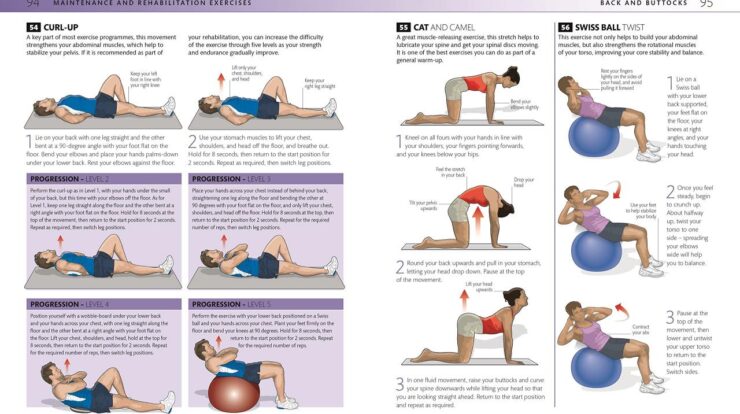
How to cure gum disease without a dentist? The answer lies in natural remedies, home care techniques, lifestyle modifications, and alternative therapies. Discover the secrets to regaining healthy gums today!
Gum disease, a common oral health issue, can be effectively managed without professional intervention. By embracing natural solutions, implementing proper oral hygiene practices, and making positive lifestyle changes, you can restore your gum health and maintain a dazzling smile.
Natural Remedies: How To Cure Gum Disease Without A Dentist
Natural remedies can be effective in treating gum disease by reducing inflammation, killing bacteria, and promoting healing. They are often used in conjunction with traditional dental treatments.
Some common natural remedies for gum disease include:
- Oil pulling: This involves swishing a tablespoon of coconut oil or sesame oil in the mouth for 10-15 minutes, then spitting it out. Oil pulling can help to remove bacteria and toxins from the mouth.
- Saltwater rinses: Rinsing the mouth with warm saltwater can help to reduce inflammation and kill bacteria. To make a saltwater rinse, dissolve 1/2 teaspoon of salt in 8 ounces of warm water.
- Herbal teas: Certain herbal teas, such as green tea and chamomile tea, have antibacterial and anti-inflammatory properties that can help to improve gum health.
It is important to note that natural remedies should not be used as a substitute for professional dental care. If you have gum disease, it is important to see a dentist for diagnosis and treatment.
Gum disease can be a pain in the neck, but it doesn’t have to be. There are plenty of ways to cure gum disease without a dentist, and you can find out how to do it here . You can also find out how to cure gum disease without a dentist by reading books or articles on the subject.
Either way, you’ll be able to get rid of gum disease without having to go to the dentist.
Home Care Techniques
Maintaining proper oral hygiene is crucial for preventing and treating gum disease. A comprehensive approach involving regular brushing, flossing, and mouthwash use is essential for optimal oral health.
Brushing your teeth twice a day with a soft-bristled toothbrush is vital for removing plaque and bacteria from tooth surfaces. Use a toothpaste containing fluoride to strengthen enamel and prevent cavities.
Flossing
Flossing daily helps remove plaque and food particles trapped between teeth where a toothbrush can’t reach. Flossing disrupts plaque buildup, preventing it from hardening into tartar, which can irritate gums and cause gum disease.
Mouthwash
Mouthwash can help reduce bacteria and plaque levels in the mouth. Choose a mouthwash containing an active ingredient like chlorhexidine or cetylpyridinium chloride, which are effective in controlling plaque and gingivitis.
Specialized Toothbrushes and Tools
Specialized toothbrushes, such as electric toothbrushes or those with angled bristles, can enhance plaque removal. Tongue scrapers and interdental brushes can also be helpful for removing bacteria and plaque from hard-to-reach areas.
Lifestyle Modifications

Your lifestyle can significantly impact your gum health. Certain habits, such as smoking, poor diet, and chronic stress, can contribute to the development and progression of gum disease.
Smoking
Smoking is one of the most significant risk factors for gum disease. The chemicals in cigarettes damage the gums and weaken the immune system, making it harder for the body to fight off infection.
Gum disease is a common problem that can lead to serious health issues if left untreated. While it’s best to see a dentist for professional treatment, there are some natural remedies that can help alleviate symptoms. For instance, a study published in Pima Mecconline found that rinsing with green tea can help reduce inflammation and kill bacteria that cause gum disease.
Other effective home remedies include using salt water rinses, applying tea tree oil, and chewing sugar-free gum.
Poor Diet
A diet deficient in essential nutrients can also contribute to gum disease. A lack of vitamin C, for instance, can lead to scurvy, a condition that weakens the gums and makes them more susceptible to infection.
Stress
Chronic stress can take a toll on your overall health, including your gum health. Stress can weaken the immune system, making it more difficult for the body to fight off infection. Additionally, stress can lead to poor oral hygiene habits, such as neglecting to brush or floss regularly.
Alternative Therapies
Alternative therapies can offer complementary support to traditional gum disease treatments. Acupuncture, laser therapy, and ozone therapy are among the most popular options.
Acupuncture, How to cure gum disease without a dentist
Acupuncture involves inserting thin needles into specific points on the body to stimulate the body’s natural healing mechanisms. It has been shown to reduce inflammation and pain associated with gum disease, promoting tissue regeneration and healing.
If you’re wondering how to cure gum disease without a dentist, you’re not alone. Many people suffer from gum disease, but it can be difficult to find the time or money to see a dentist. Luckily, there are a few things you can do at home to help cure gum disease.
You can find more information on how to cure gum disease without a dentist online.
Laser Therapy
Laser therapy uses low-level lasers to stimulate cell growth and regeneration. It can help reduce inflammation, kill bacteria, and promote tissue healing in the gums. Laser therapy is often used in conjunction with traditional treatments to enhance their effectiveness.
Ozone Therapy
Ozone therapy involves administering ozone gas into the gums to kill bacteria and promote healing. Ozone has antibacterial and anti-inflammatory properties, which can help reduce gum inflammation and improve tissue health.
Warning Signs and When to Seek Professional Help

Ignoring gum disease can lead to severe complications, making early detection and treatment crucial. Here are some common warning signs to watch out for:
Swollen, Bleeding Gums
Healthy gums should be firm and pink, but inflamed gums become swollen and bleed easily during brushing or flossing.
If you’re looking for ways to cure gum disease without breaking the bank, you’re in luck! There are a number of natural remedies that can help reduce inflammation and pain, and even reverse the progression of the disease. Check out how to cure gum disease without a dentist for more information on how to treat gum disease at home.
Persistent Bad Breath
Gum disease releases foul-smelling toxins that cause chronic bad breath (halitosis).
There are a few ways to cure gum disease without a dentist, including using natural remedies like oil pulling and rinsing with salt water. For more information on how to cure gum disease without a dentist, check out this helpful guide: how to cure gum disease without a dentist . It provides step-by-step instructions and tips on how to cure gum disease without a dentist, so you can get your smile back on track.
Receding Gums
Gum disease erodes the gum tissue, exposing the tooth roots and making them more sensitive.
Loose Teeth
Advanced gum disease can weaken the supporting structures of the teeth, causing them to loosen.
Pain and Discomfort
Gum disease can cause pain, sensitivity, and discomfort while eating or brushing.
If you experience any of these symptoms, it’s essential to seek professional help from a dentist promptly. Early treatment can prevent the disease from progressing and causing further damage to your oral health.
Closing Notes
Remember, early detection and treatment are crucial for successful gum disease management. If symptoms persist or worsen, don’t hesitate to seek professional guidance. With the knowledge and tools provided in this guide, you can proactively address gum disease and achieve optimal oral health.
FAQ Explained
Can gum disease be cured permanently?
Gum disease is a chronic condition that can be managed but not permanently cured. However, with proper care and treatment, its progression can be halted, and gum health can be restored.
Is flossing really necessary for gum health?
Yes, flossing is essential for removing plaque and bacteria from between teeth, where brushing alone cannot reach. Regular flossing helps prevent gum disease and promotes overall oral hygiene.
Can stress contribute to gum disease?
Yes, chronic stress can weaken the immune system, making the body more susceptible to infections, including gum disease. Stress management techniques can help improve gum health.





